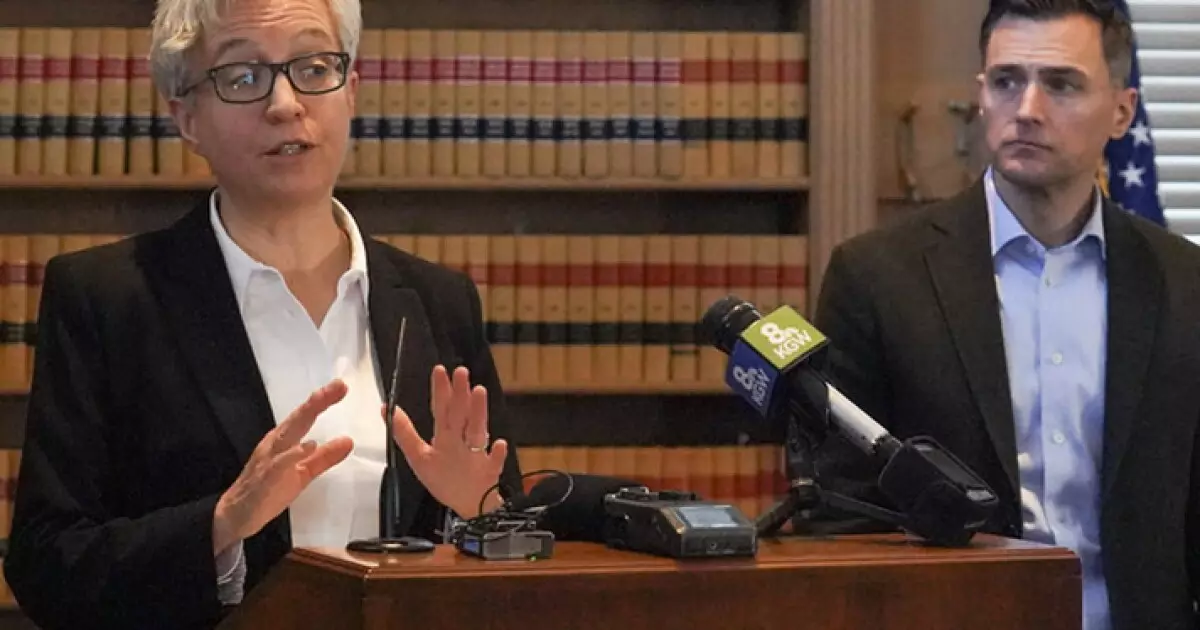Oregon’s transportation future teeters on the brink of disaster, and the root of this crisis is a failure of political leadership. When lawmakers adjourned without passing a comprehensive transportation funding package, they triggered a cascade of consequences that will reverberate across the state for years. Instead of strategic investments that would sustain and improve Oregon’s roadways and safety systems, the state now faces devastating layoffs—nearly a thousand jobs cut, including both filled and vacant positions—alienating residents and threatening essential services. This is not just a budgetary hiccup; it is a reckoning that lays bare the perilous disconnect between political priorities and public needs in Oregon.
The decision to withhold funding isn’t merely bureaucratic; it’s a political gamble with life-altering consequences. Public safety, economic vitality, and quality of life are now at risk as maintenance crews, support personnel, and critical operational staff are dispatched, leaving overlooked infrastructure vulnerable. Potholes will proliferate, wildfire safety measures will be diminished, and winter’s wrath will catch Oregon off guard—an unforgiving reality that the state’s leaders are too slow to avert. Their failure signals a dangerous disregard for the importance of proactive investment in foundational transportation systems that are the backbone of economic and community resilience.
A Catastrophic Impact on Everyday Transit and Emergency Response
The immediate aftermath of these layoffs is already visible. Basic but vital services—pothole repairs, pavement maintenance, and roadside brush clearance—will be scaled back significantly. These cuts translate into deteriorating road quality, increasing accident risks and obstructing any semblance of smooth transportation. As fire season looms, the reduced capacity for vegetation management will heighten wildfire threats, jeopardizing communities and emergency responders alike. With fewer staff available to clear firebreaks or maintain visibility along rural roads, the emotional toll on Oregon’s citizens will be compounded by tangible threats to safety.
Winter, a notoriously challenging season in Oregon, will become even more treacherous. The reduced workforce—already cut by 449 vacant positions—will struggle to handle snow removal, ice treatment, and road closures. Mountainous and rural regions, largely dependent on reliable winter maintenance, could become death traps where transportation halts, emergency responses are delayed, and residents are left stranded. The broader economic implications cannot be overstated: delayed deliveries, increased vehicle wear-and-tear, and reduced access to vital services could all escalate, carving deeper economic wounds into Oregon’s landscape.
The political miscalculation is stark. With nearly 1,000 jobs gone, not even the deference to institutional knowledge—retaining senior staff—can fully soften this blow. These layoffs are a shot across the bow, underscoring how political indecision and failure to act will directly harm the everyday lives of Oregonians. The shift toward delaying or canceling projects, including crucial infrastructure upgrades, will only worsen the long-term decay of Oregon’s transportation network.
Political Leadership’s Short-Sightedness and the Call for Accountability
Governor Tina Kotek’s plea for a legislative solution highlights the preventability of this tragedy, but her words cannot conceal the stark reality: Oregon’s leadership has, in essence, abandoned its duty by shirking the necessary political courage to pass a funding bill. This crisis did not have to happen. For over a year, legislators debated a $14.6 billion transportation package, yet political parties failed to reach the supermajority threshold required to enact it. Their inability to compromise reveals a troubling prioritization of ideological battles over tangible public welfare.
This situation exposes a fundamental flaw in Oregon’s political system. It’s a reminder that governance should not be a contest of ideology but a pragmatic pursuit of the common good. The failure to pass the transportation bill is a microcosm of broader governmental dysfunction—one that risks turning Oregon’s vibrant, scenic state into a neglected, hazardous environment where safety and progress are sacrificed on the altar of political posturing.
If lawmakers are truly committed to their constituents, they must recognize that investing in Oregon’s infrastructure is not simply about roads; it’s about safeguarding economic activity, community safety, and future growth. Temporarily delaying or scaling back projects may seem like a quick fix, but it’s a dangerous illusion that will only deepen the crisis. The only genuine solution is political willpower—urgent, decisive action in the form of new taxation or reforms to fund and sustain the state’s transportation backbone before the damage becomes irreversible.
In the end, Oregon’s current predicament is a stark lesson: neglecting vital infrastructure in pursuit of political gains ultimately undermines the very foundation of societal resilience. The question remains whether the state’s leadership will muster the courage and sense of responsibility necessary to reverse course before the damage is beyond repair.

